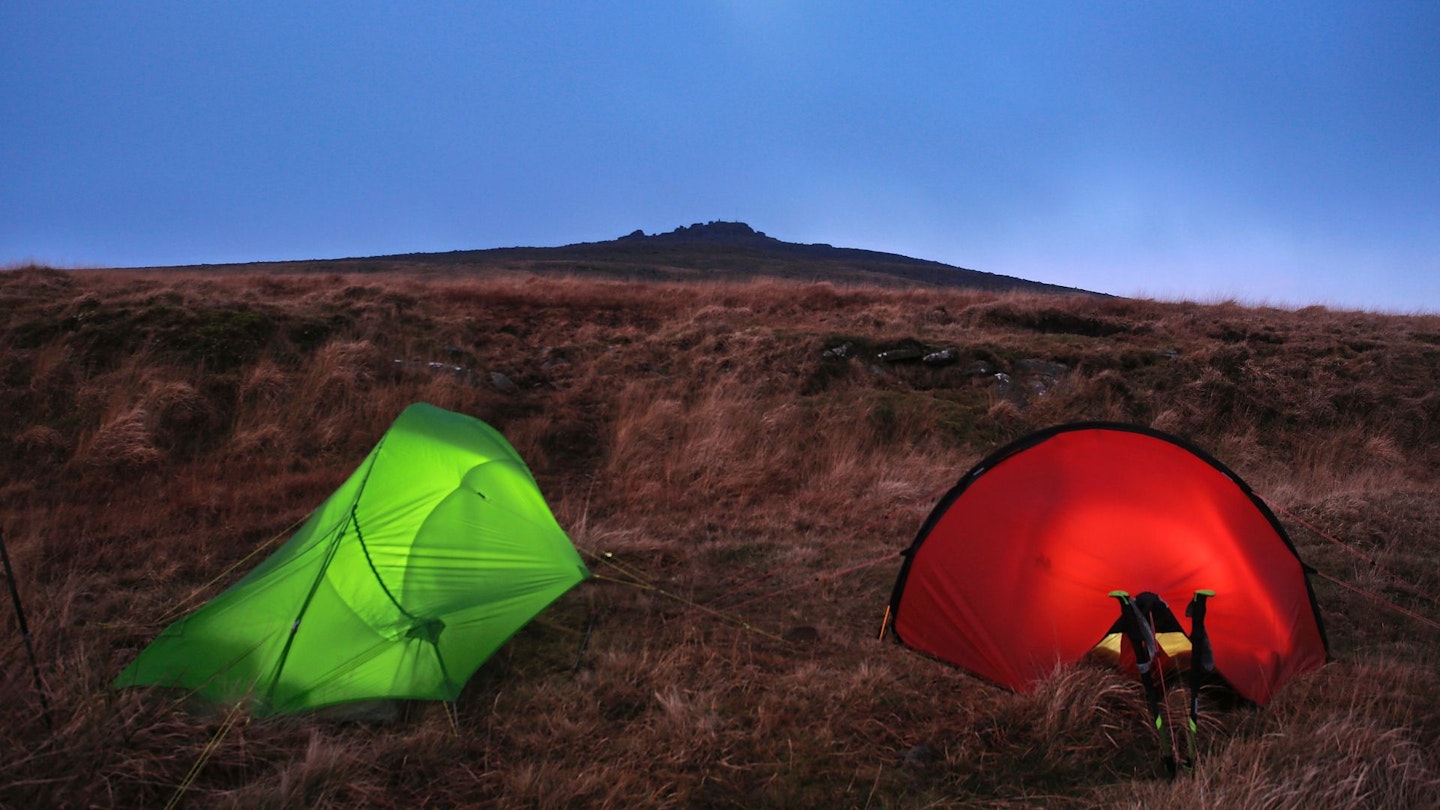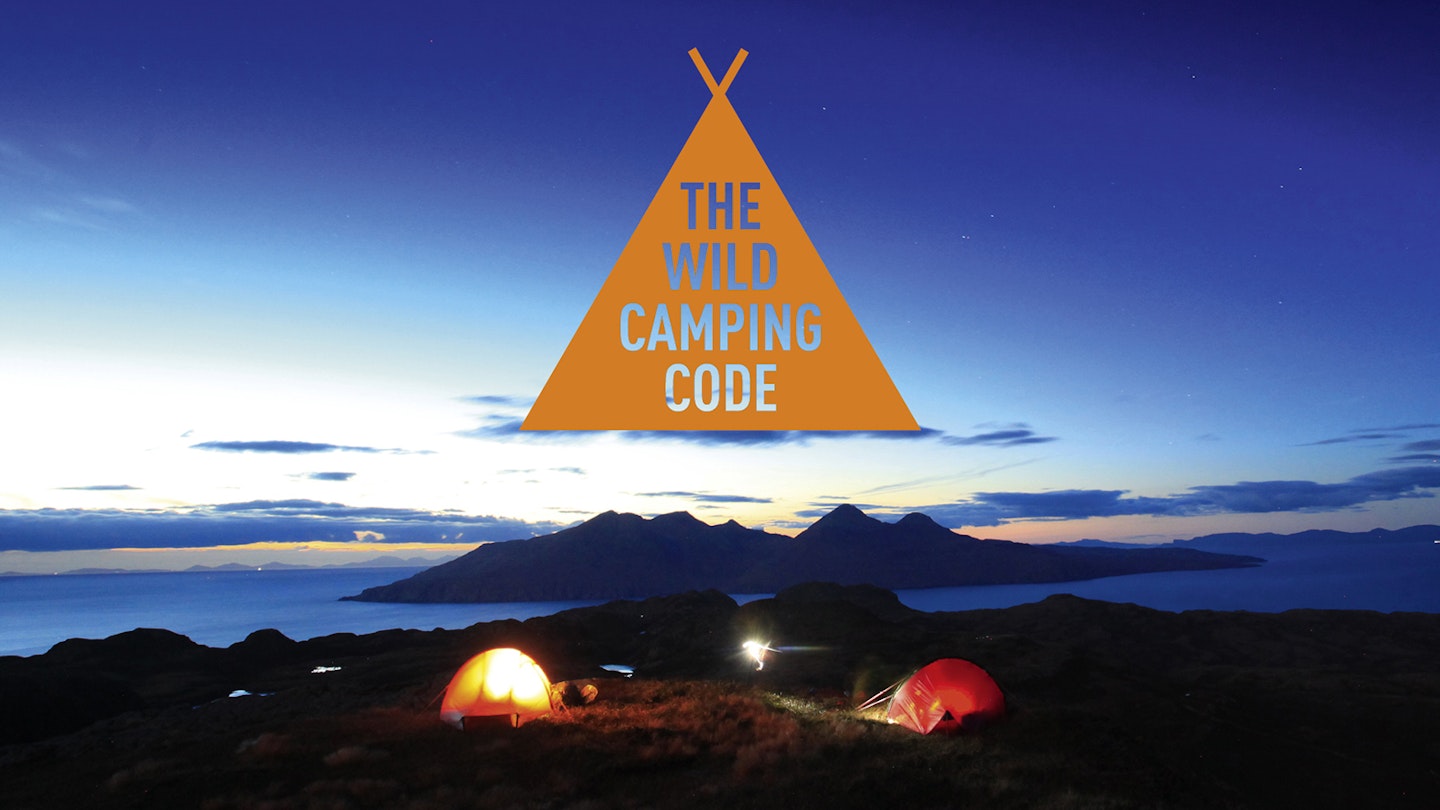Wild camping has exploded in popularity in recent years and is the purest form of spending a night under canvas. To make sure you do it the right way and leave as little impact on the landscape as possible, refer to the Wild Camping Code when planning your trip.
There are many questions to consider before chucking a tent in your pack and heading for the hills. Is wild camping legal or not? Do you have to seek the landowner's permission? Are the rules different in the Lake District, Snowdonia, Dartmoor, and Scotland?
In the article below we get down to the nitty-gritty of what you can and can't do when wild camping, starting with the Wild Camping Code.
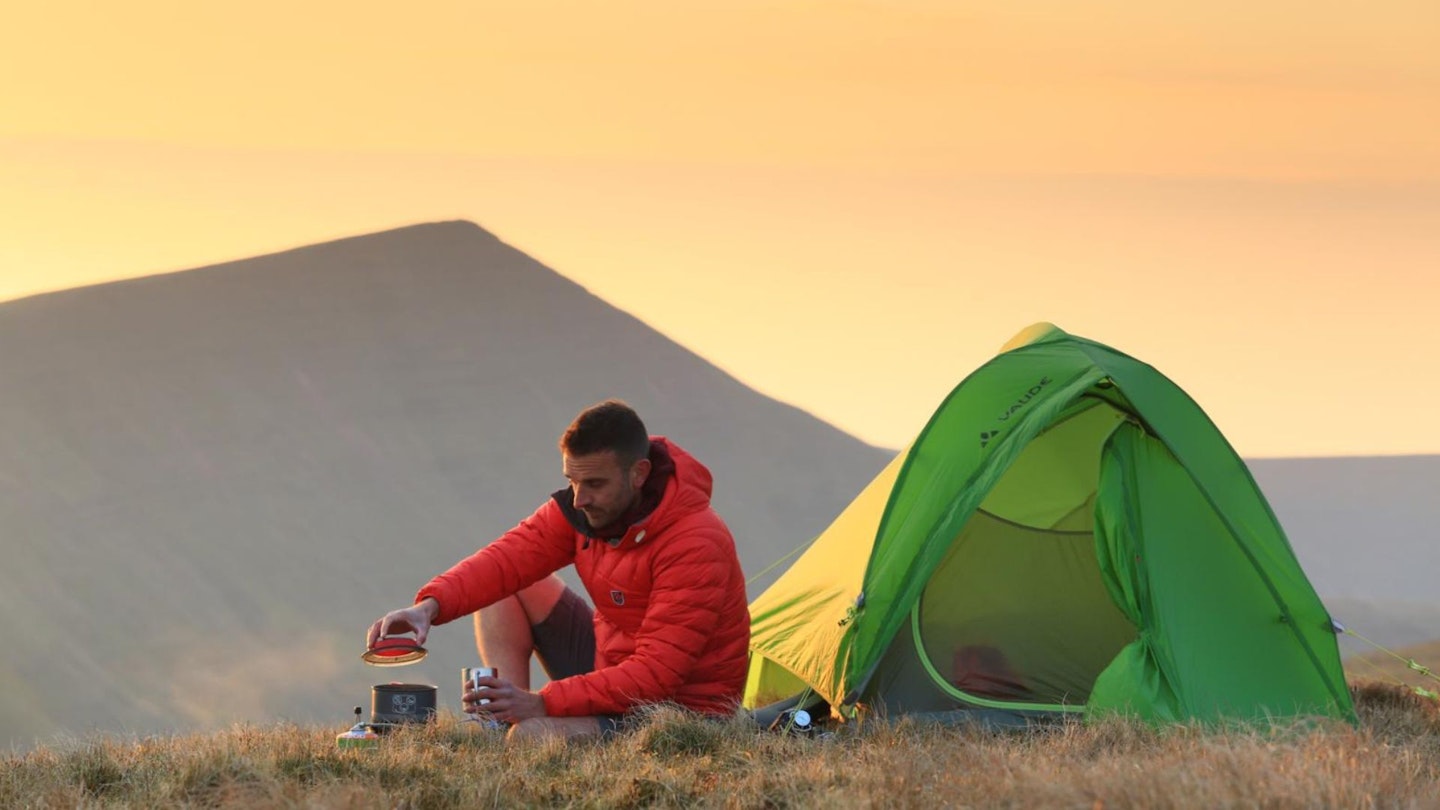
The Wild Camping Code
Camp high on open hills away from main tracks, houses and farms
Minimise the numbers of people and tents
Pitch your camp late in the evening and leave early in the morning
Don't dig drainage ditches, trample plants or move rocks
If asked by a landowner move on, do so respectfully and without argument
Don't light any fires; use a proper camping stove for cooking
Toileting should be well away from any water source or path (30 metres or more)
Paper and sanitary items should be bagged up and carried out, not buried
Do not use streams or rivers for washing with soaps or detergent
Maintain the peace by aiming to be as quiet as possible during your camp
Don't remain in the same spot for more than two nights maximum
Bag up and carry out all litter, including food scraps
Leave no trace that you've camped
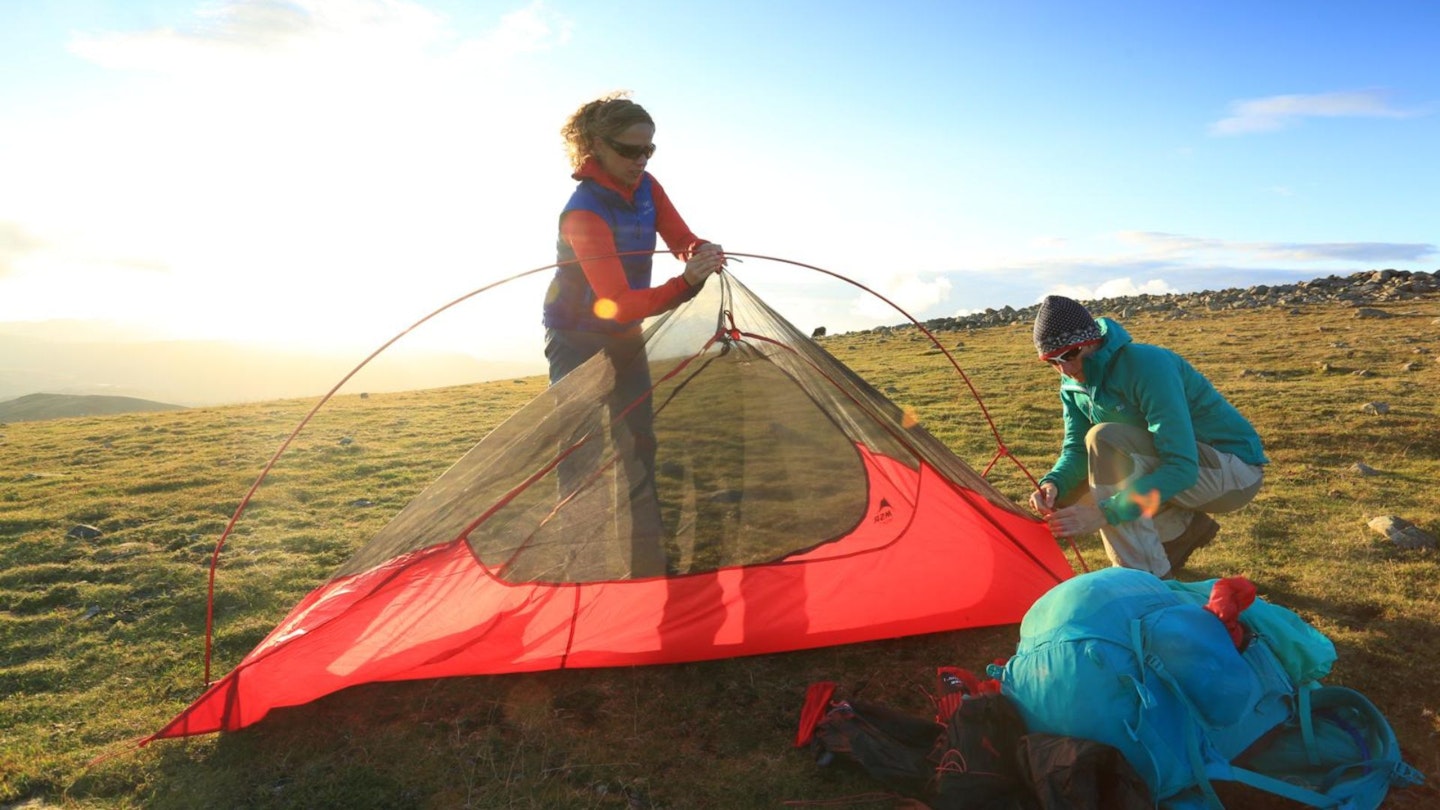
Is wild camping legal in Britain?
In England and Wales, the Countryside and Rights of Way Act 2000 (aka the CRoW Act) gives a right of access on foot to land which was mapped as mountain, moor, heath and down, defined as ‘Open Access land’. Here, you can walk anywhere but not camp, cycle or ride a horse, and you have no right to access rivers or lakes.
If you want to wild camp on Open Access land, you’re required to get the landowner’s permission first – but there are no complete, publicly accessible records of land ownership so that’s not usually feasible.
However, like in Scotland, there is a long tradition of camping in the hills which many landowners, including the National Trust which owns much of the fellside in the Lake District, acknowledge.
So while wild camping is technically a trespass, it is generally tolerated in the hills (anywhere above the highest fell wall – over about 400m) if done discreetly and respectfully.
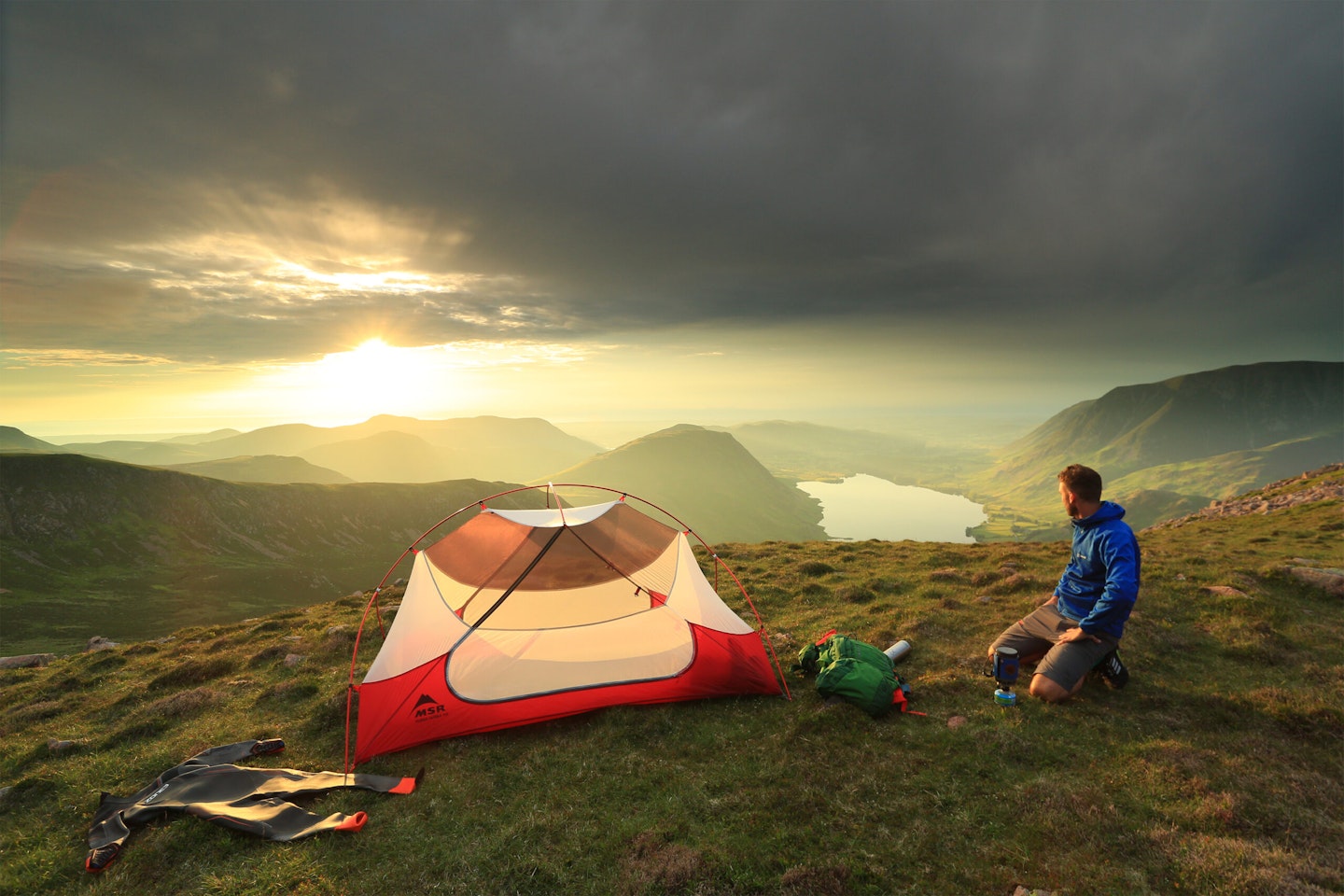
Wild camping is also, in England, Wales and Northern Ireland, technically illegal. Yet we do it all the time and encourage you lot to as well – so what’s the deal? The answer is a complicated tangle of laws, by-laws and tacit agreements that varies from country to country and place to place.
What’s legal in Scotland is not in England, but what’s legal over most of Scotland is not around Loch Lomond. That’s confusing already, so let’s untangle it.
First, it’s important to define what’s meant by ‘wild camping’. It is, by its simplest definition, camping outside of a campsite or other infrastructure, generally out in nature.
For most hillwalkers and mountaineers, it’s usually considered to be a fleeting and discreet overnight stay in a place far from roads and settlements – usually high on the hills or deep in the woods.
Travelling light with a small shelter and vanishing the next day leaving little more than a shallow imprint in the grass.
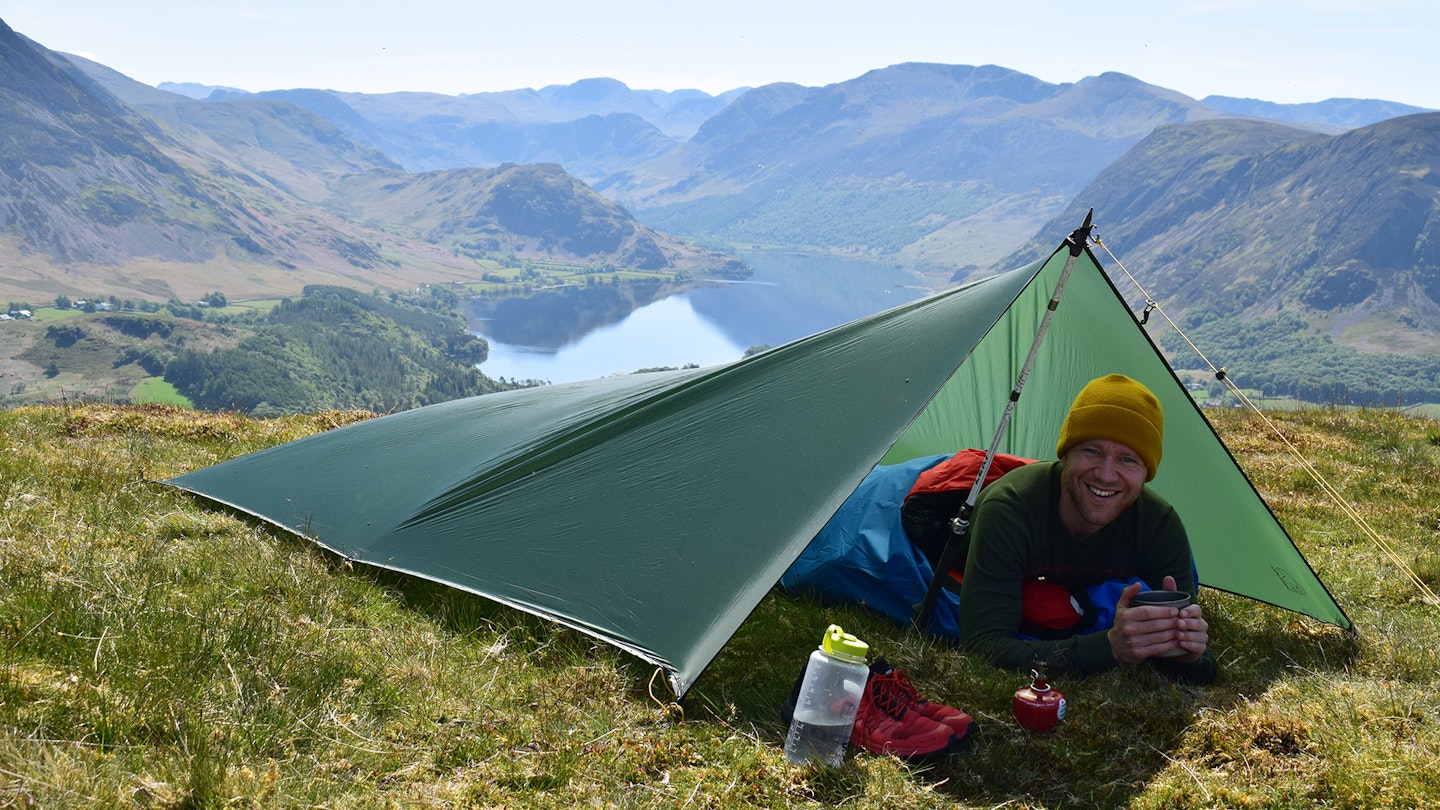
Wild camping in Scotland
In Scotland, you can wild camp pretty much anywhere you want, thanks to the Land Reform (Scotland) Act 2003. Based on a longstanding tradition of unhindered access to open land, this enshrined in law the right to free, respectful access to unenclosed land and inland water.
That means you’re free to walk, cycle, ride a horse, paddle, swim or wild camp anywhere in the Scottish countryside, so long as you respect the land and other people on it. The respect aspect is important. The Act hinges on the principle of ‘responsible access’, with obligations for landowner and user.
As a user, you’re expected to take responsibility for your safety and actions, respect other people’s peace of mind, respect land management operations (like keeping clear of tree felling), care for the land and wildlife, and keep your dog under control.
Basically, you can do what you want and go where you want if you treat the land and other people well while you’re there.
Things are slightly different in the Loch Lomond and the Trossachs National Park (LLTNP), where, from 1 March to 30 September, you need a permit to camp within certain zones. It costs £4 per tent or van per night for a maximum of three nights. But most of these areas are around roads and none on the open hill.
Wild camping on Dartmoor
Dartmoor is the only place in England where you can legally wild camp, so long as you’re respectful, unobtrusive and stay well away from roads or settlements, carrying everything you need in your pack. What the National Park refers to as ‘backpack camping’. This doesn’t apply to the whole National Park but it does cover large swathes of the moor. You can see which at www.dartmoor.gov.uk/about-us/about-us-maps/camping-map. The by-laws which apply to this are currently under review, but, if you’re discreet and respectful, you’re likely to still be fine.
Get the latest information and a map of where you can camp on Dartmoor here.
